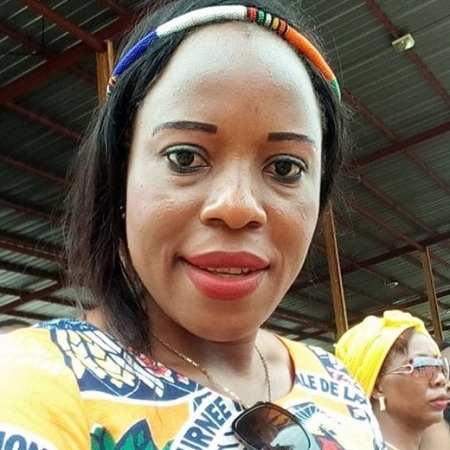Ndjamena, 18 – 19 June 2019

The International Organization of La Francophonie (OIF) and its partners organized with the High Patronage of the President of the Republic of Chad, His Excellency Mr Idriss BEBY ITNO, an international conference on the theme “Education of girls and Training of women in the French-speaking space to ensure inclusion and gender equality in education through education.
The conference took place at the Radisson Blu Hotel in N’Djamena, the capital of Chad from June 18 to 19, 2019.
The International Alliance of Women (IAW) was part of the event through two members :
– Anne Pélagie YOTCHOU from Cameroon
– and Rakia KABIA DIAKITE from Chad
The opening ceremony of the conference on 18 June 2019 at 11 am (GMT + 1) had a rich panel with His Excellency Mr. Idriss DEBY ITNO, President of the Republic of Chad, accompanied by his wife, the Secretary General of La Francophonie, Mrs. Louise MUSHIKIWABO and the Prime Minister of Rwanda.
The N’Djamena conference reminded us that inequality in education is a reality in all aspects of the educational process (access, retention, completion, collection and processing of data, learning outcomes, educational and vocational choices, …) and lifelong learning, disproportionately affecting girls and women, especially those in vulnerable situations. During the two (02) days, both in the plenary sessions and during the various workshops, we explored the root causes of inequalities, disparities and various forms of exclusion and discrimination affecting girls and women.
The conference was divided into several segments, namely:
- A ministerial component where we had ministers from different countries in charge of issues related to education, training, women’s empowerment and socio-economic development of women and girls, who shared the experiences of their countries and all the good practices for girls’ education, women’s training, inclusion and gender equality; the issue of revising policies for girls’ education and training for women has been pointed during the conference;
- Thematic round tables:
– The one on the review of the progress and challenges of girls’ education and the training of women gave opportunity to interventions on the general state of affairs concerning the issues and policies of education which must be in the most cases are re-evaluated and redefined based on current requirements to keep girls in school. During this workshop there were also cross-talks on progress and challenges. Panelists and participants shared experiences and it was agreed that governments should review their education system and take into account the specific needs of girls.
– The roundtable on strengthening education systems to build gender-sensitive and multi- actors’ policies has given rise to debates on the need for greater gender mainstreaming in education management and information systems.
– The last roundtable on civil society was an opportunity to rethink civil society’s role which is very important in improving girls’ education and training of women. This activity was very interactive, a meeting of experiences sharing on initiatives for the education of girls and it was also an opportunity for the International Alliance of Women to share its experience with the project “water and Pads” to keep girls in schools; the project was very well applauded and we received about 80% of the participants at our information booth who came to have more details about the project and to take inspiration from our project to go to their countries to implement a similar project.
- Workshops
The workshops were also moments of the given and receiving in terms of good practices to strengthen the education of girls and women in the French-speaking world.
At the end of the two (02) days of conference, recommendations have been developed and it is clear that the issue of girls’ education and training of women must be addressed by the various states with a multi-actors approach and gender equality to implement more effective actions for keeping girls in school and to train women; civil society organizations were also called to continue to mobilize and get involved on the field to support and reassure that adequate policies are putting in place to make girls’ education and training of women a priority in their various countries. This meeting of giving and receiving enabled the participants also to establish and develop new specific networks on girls’ education in French-speaking Africa with a focus on those living in rural areas. The “Water Pads” project was noted as a good practice to expand in other countries; project flyers, printed in Cameroon, were distributed to participants and officials during the conference with the hope that the project will gain the attention for a positive return in terms of funding to help us get funds to extend and strengthen the activities of the project in various countries identified in Africa.
The N’Djamena Conference ended on June 19, 2019 with a Gala Dinner hosted by la Francophonie and the Government of Chad.
Done at Yaoundé on June 26, 2019



